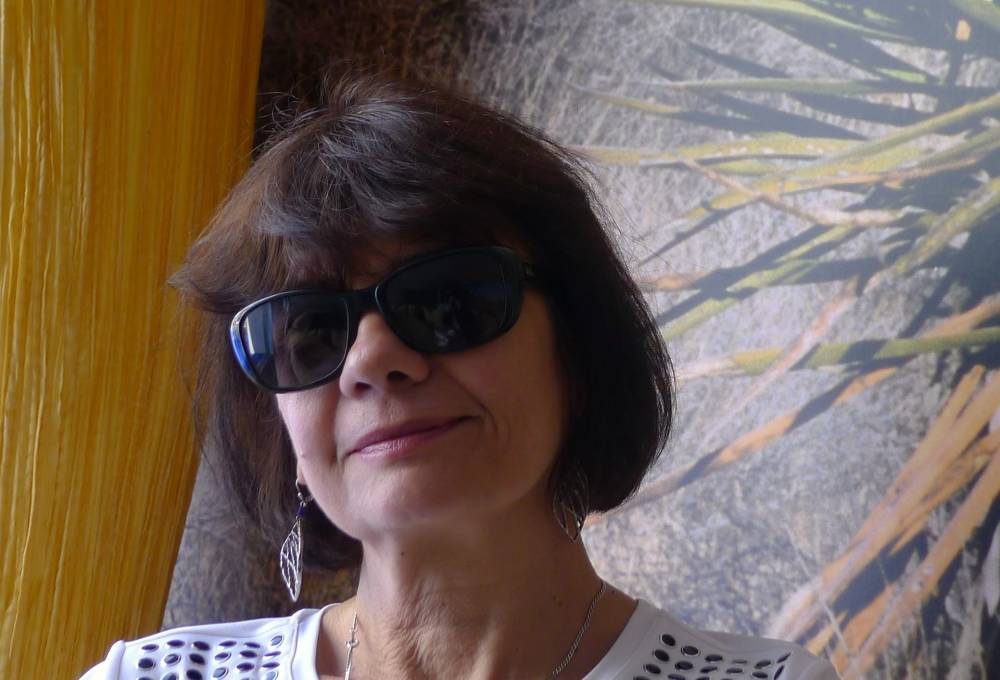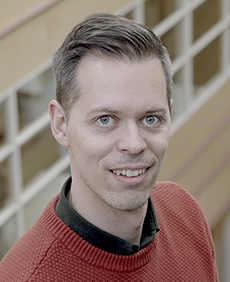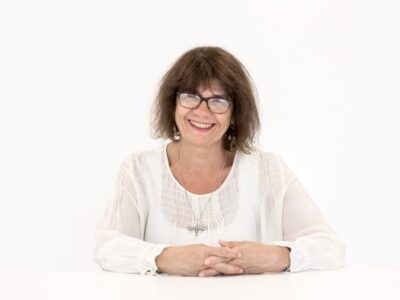Spring time in Paris is, as we know from the songs, not bad. Less internationally known is the song that extols the beauty of the blossoming chestnut trees in Oslo. As international travel restrictions are currently in effect, travelling will have to wait, and so this interview had to be conducted over video conference. We discuss the foundations of Malabou’s thinking as well as several important strains present in the articles of this special issue – rationality, materiality, ‘anarchic education’ – and the question of life itself.
Kjetil Horn Hogstad: Who would you say are your main influences?
Catherine Malabou: I would say that four main sources influenced me. Of course they didn’t come to me simultaneously, chronologically speaking, but I will present them as if they did.
The first source would be my classical, traditional philosophical background that allowed me to specialize on Kant, Hegel and Heidegger; let’s call it German modern and contemporary philosophy. The second source is deconstruction and the exploration of Jacques Derrida’s thinking – of another way of reading texts and considering the history of philosophy. The third source would be my discovery of recent research on the brain, of brain plasticity, notably. The last source would be all the changes brought about by my exile, so to speak, in English-speaking countries. I’ve been teaching in England for ten years and in the USA for about the same. Even if I still define myself as a Continental philosopher, I have become more open to anglo-saxon philosophy.
Do you see this particular mix of inspirations, this more scientifically or empirically oriented philosophy, as a new modality for philosophy?
Yes, I think so, because it’s not only my trajectory that is at stake here. If you look at the most recent important philosophical achievements, speculative realism for example, you see a strong tendency to go back to science. Well, to be precise, it’s not really to go back, as this move is also creative.
Today, new approaches to rationality are developing, challenging the post-structuralist dismissal of epistemological issues. Rationality is not considered as something obsolete anymore, or just belonging to the metaphysical tradition with no future. Paradoxically, all reconceptualisations of rationality imply an empirical orientation as their starting point.
Indeed, all these reconceptualisations, including yours, seem to be interested in materiality.
Yes, absolutely. We were talking about deconstruction before. It has of course been very important, but in a certain sense it dematerialized the very tissue of philosophy. This doesn’t mean that we have to return to an old style materialism, inspired by a dogmatic understanding of Marxism, but rather that materialism has to be reinvented. I am working on this reinvention through an exploration of current molecular biology, mainly the relationship between genetics and epigenetics. I am interested in the core of indeterminacy, openness and plasticity that dwells at the heart of deterministic necessity. Epigenetics definitely allows for a new vision of life.
Yes, this sort of changes the idea of life, doesn’t it? It gives us an impetus to revisit the question “the meaning of life” – “what is the meaning of life within this new paradigm?”
For a long time, “life” in philosophy has only designated the life of the soul, not the empirical fact of living. Of course, some texts are talking about the biological being, but always in order to secondarize biological life in regard to spiritual life. French philosophy, as late as the second half of the 20th century, envisaged life as spiritual, or symbolic. Or non-organic, if you think of Deleuze’s “bodies without organs.” I think that this is profoundly changing now.
You’ve written several texts about the different types of life, among them “One Life Only.” There, the question of where life is, is very important – in that text, a central question is whether “symbolic life” is inside or outside of “biological life.” This dichotomy between the inside and outside is one you consistently return to. What makes it so powerful, do you think?
I mentioned my philosophical training. I was very much influenced by Hegel, I would even call him my philosopher of reference. As you know, Hegel totally challenges any difference between the outside and the inside. There is only Wirklichkeit, that is, what’s ‘real’, or in his words, ‘the actual’. Actuality is a system with no inside and no outside.
Such a vision has been challenged by someone like Heidegger, who says – notably, in Being and Time – that outside is perhaps not outside in the sense of something external, but in the sense of an opening, an ex-istence. Heidegger thought that Hegel had missed the true meaning of transcendence, which is the fact that the Dasein, or human beings, are not entirely what they are. They have to become who they are, and so there is always something which is not given, that is, the future – and the future is this transcendent opening.
So Heidegger rightly said the outside is not “the external” – that would be in opposition to the eternal – it is just the movement of time itself. I personally challenged that again because I think that even the opening of time happens within the system. We have to think, paradoxically, of an opening that is inside the systematic totality. And I think life is that kind of structure, because nothing is really outside life. Life is immanently what it is: Always different from itself while never separating itself from itself. Such is the meaning of plasticity.
You go into this aspect of plasticity in your talk called “Life and Prison.” Does what you say in any way point towards a new fundamental ontology, to use Heidegger’s term?
It’s funny because I was thinking about that this morning. I have to write something – an article perhaps – about this. It seems to me that until very recently, the major ontological question was that of being, after Heidegger. Now I think life has taken that spot, and I would like to investigate this transition. I think something ontological is at stake. The very meaning of ontology itself is implied in this transformation.
That’s also going on in plasticity, isn’t it? There’s an ontological aspect of plasticity.
Yes, but it is not elaborated enough, perhaps. If I elaborated it now, it would be in this direction. I wonder why the question of being has ceased to be important. I don’t think it’s just because of Heidegger’s political commitment! I think it’s a more fundamental question. The question of being is slowly secondarized and I want to understand why. Not that it has become obsolete per se, but obsolete perhaps in the way Heidegger formulated it, as “difference.” As you know, I believe that even “difference” is changing.
Of course, your book Changing Difference concentrates on this dynamic. Let us go back to speculative realism, which you mentioned a moment ago. In Before Tomorrow, you engage with speculative realism as represented by Quentin Meillassoux’s After Finitude. His approach to the question of being is very different from the deconstructive, which focuses on language.
As you remember, Meillassoux often refers to Badiou, for whom mathematics is the expression of being. This is an important point in Badiou’s book Being and Event. So After Finitude develops a kind of ontology – a platonic ontology – of mathematics. For Plato, as we know, being could be expressed in numbers and geometrical forms. Mathematics was the ontological expression per se. Speculative realism derives from this source; a source that Badiou thinks has been obscured by Heidegger’s approach. Heidegger would have distorted ontology, disrupted it from its mathematical context.
So for speculative realism, mathematics gets the status of the true language of being – it gets a different ontological status from other types of language. This runs counter to Derrida’s notion of language.
Totally. But as you’ve noticed, and which is very annoying, Meillassoux doesn’t quote Derrida once in his book, whereas I think he discusses him all the time. It would be very interesting to do some research into the question “where is Derrida today, in this discussion?”
I feel like asking you the same. In my own work I’ve been reading you on the basis of Derrida’s notion of language. I’ve called your approach a “semiotic materialism” because it grasps materiality, but it establishes itself as a plastic instance. That makes it semiotic to me.
That’s great. I totally agree. I love your expression! Attention paid to language is vital for me.
To bring in another concept from Derrida, I wonder: What does the futur of plasticity bring, to maybe ask an impossible question?
My current ‘plastic preoccupation’ is anarchy as the most plastic political form. That is, a mode of being, collectively or individually, that has to constantly invent itself. As its name indicates, it is devoid of any principle, or foundation. Anarchy is a mode of being that has to construct itself as it goes.
At the moment, I’m looking at the motive of anarchy in seven thinkers. First, Aristotle, who invented the term archē. Then, Schürmann, Levinas, Derrida, Foucault, Agamben and Rancière – I try to see how this motive works secretly in their books and how, at the same time, they disavow it. I’m in fact forming my own concept of anarchy through their rejections.
When writing about the German educational concept Bildung, I ended up somewhere along the lines of anarchy because I was trying to imagine what a plastic approach to it would be. Do you think there is a possibility for an anarchic education, or does its structure with educational goals, ideas, didactics and so on, resist it?
To my knowledge, there is only one actual philosophical engagement with this question, which is the work of Jacques Rancière. In his book The Ignorant Schoolmaster, he develops a theory of a purely anarchistic mode of education. The master does not teach the students or make them understand anything. Rather, he helps them teach themselves. He teaches how to teach, in a certain sense.
If we follow Rancière, we have to assume that, for example, a student who never studied English or French before, could learn by themselves, progressively, if you just give them a text. Rancière is advocating for what he calls the radical equality of all intelligences, which means that the master has nothing more than the students.
Rancière also says that theatre, for example Brecht’s plays, is too didactic because it gives a message to the spectators. Rancière is against all models, of all intentions to teach something to someone, be it in the theatrical form or otherwise. In my opinion, this is much too radical. I believe in the autonomy of the students, of course, but at the same time I think that the educator has to propose some forms, or paradigms. The part played by transference seems difficult to relinquish The students are free to follow the models or not, but I think that temporary projection, in the psychoanalytical sense, is necessary.
For me, anarchy doesn’t mean total absence of models. But a model is not necessarily a law or something definitive. It’s like a mask. You can wear a mask for a certain time, in order to find your identity, and then when you don’t need it anymore, you throw it away. I think education is impossible without this play of masks.
This is a thread you pick up in “Whither Materialism?”, where you discuss the symbolic relationship between natural selection and social selection. You argue that natural selection, unintended as it is, is more plastic than social selection that presupposes certain criteria.
Exactly. In fact, selection should invent its own criteria. For true selection, for egalitarian and democratic selection to happen, the criteria should not be given in advance, but be invented as the selection happens. This idea is as old as Nietzsche and it touches exactly on what I was saying a moment ago about models. Education is selection anyway, in one way or another.
And this selection is ideally going towards justice or something like that. Derrida touches on the same in his Spectres of Marx, which you’ve criticized. His view on the messianic doesn’t fit with the temporality of plasticity, does it?
No, because as Derrida went on, he got more and more ‘messianic’. His motive of “messianicity without messianism” remains a messianism. This was quite late in the text, as if in fact it was more or less his last words. In his view, if justice or democracy happened, it would be like a pure event and not something we can foresee or expect. It will just arrive. Or not.
And there’s nothing you can do about it. But according to plasticity, you can.
Well, at least, plasticity affirms that all that happens is not entirely unexpected and surprising. Plasticity as a concept is inherited from Hegel and Marx, which means that it is linked with a strong sense of the historical. Events are never pure events, but reveal a dialectical relationship between anticipation and chance.
Derrida changed his mind a little bit on this point, didn’t he, when he wrote the preface to your first book, The Future of Hegel?
He did, but if you remember well, he says somewhere that his own notion of temporality is not plastic because he can never see anything coming. For him, temporality is not plastic, which means that no event can ever “take shape”, crystallize in a form. The really important things, like the coming of justice or democracy, are for that reason not plastic. Derrida considered plasticity to be too metaphysical as a concept, because of its reliance on the concept of form. For him, there can’t be any form with a non-metaphysical, non-traditional meaning. Form is necessarily linked with presence and visibility.
It’s linked but in plasticity it’s revolutionized, isn’t it? Because you’re very clear in all your books that the form, even the form of the the transcendental, is changing. In plasticity, form itself is not static. It retains its bond with metaphysical formulations of the past, but it’s different.
Form is always more than itself. A form is never simply a shape or a contour. It is an organization, that is, the collaboration, or networks, of different elements: shape, of course, but also context, corporality, speed, colour, and sense. The study of forms then belongs to what you beautifully call “semiotic materialism.”
So Derrida was not interested in semiotic materialism in that sense.
No, but neither was I in the beginning. I remember being very critical of the ‘neurological revolution’ that Jean-Pierre Changeux’s book The Neuronal Man provoked when it came out in 1983. I thought Changeux intended to reduce the human to a pure machine, and it took me time to discover that wasn’t the case. Something else was at stake.
I suppose some of what’s at stake is the idea of the brain as a rigid thing, which is very prominent in education as well. The tension between the given and the developing in the brain in education is interesting because we’re inundated with these different diagnoses – ADHD, dyslexia, dyscalculia – an inundation which appears almost to be pointing towards an ossification of the student. If you have a diagnosis, there’s nothing you can do about it.
The problem is that neurology is very normative. That’s why we need philosophy to introduce some criticality into it. Brain research can be open and creative, but also normative, repressive, and reactionary.
So I have to ask: Why centre on the brain, exactly?
People who know about brain research know that “the brain” doesn’t designate what I have in my skull, but the entirety of the organism.
It’s more of a locus for life, maybe?
Absolutely, a life system. Of course.
k.
Catherine Malabou
C.





